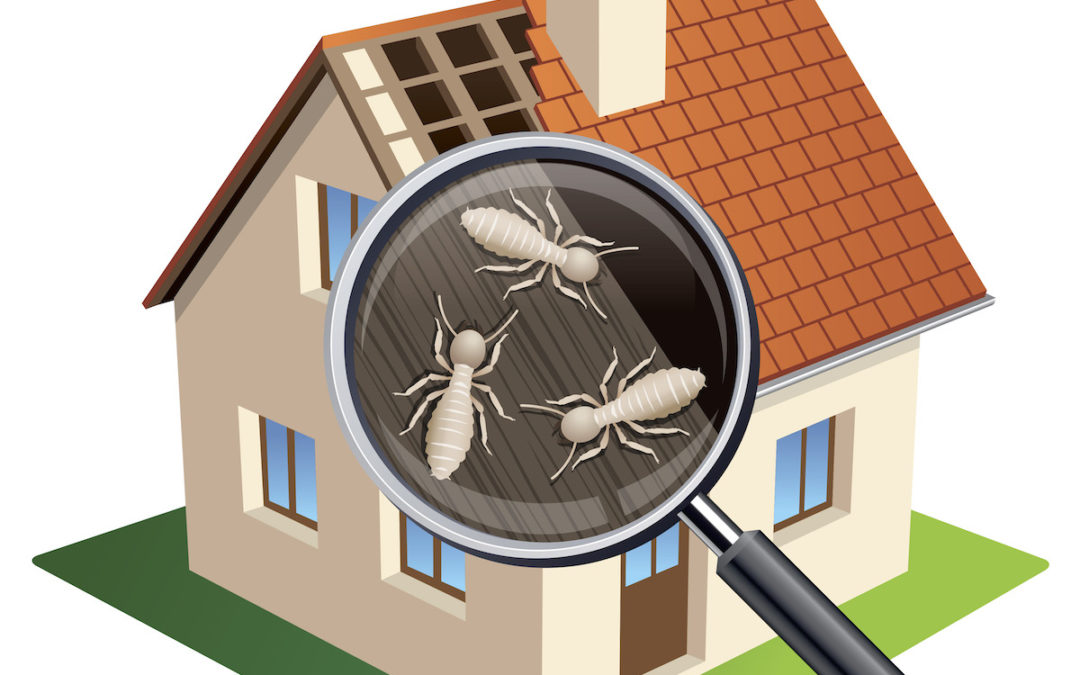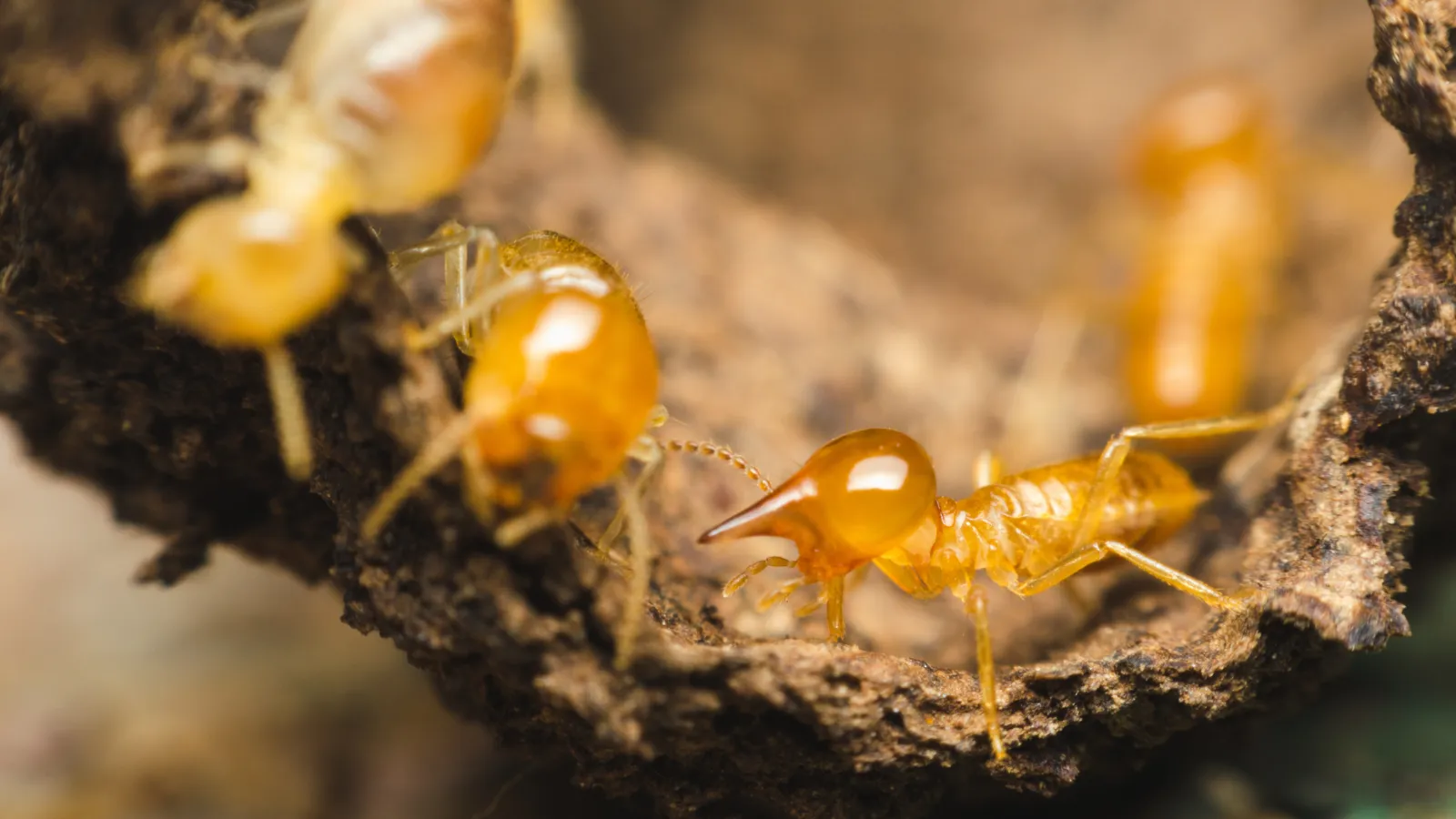Comprehensive Termite Control: Protect Your Property with Expert Services
Ecological Impact of Pest Control: Harmonizing Effectiveness With Sustainability
The ecological effect of insect control is a vital issue that needs a fragile balance in between attaining effectiveness in guaranteeing and handling bugs sustainability of our environments. As we strive to shield our plants, homes, and health from the hazards postured by parasites, the methods we employ can inadvertently hurt the atmosphere. From making use of damaging chemicals that seep right into our dirt and water to the unintended repercussions on non-target types, the consequences of traditional parasite control techniques are significant. Nevertheless, there are arising techniques that provide hope for a much more lasting approach to pest monitoring. These solutions not only aim to attend to the instant pest problems but also think about the lasting health and wellness of our planet.
Hazardous Chemicals in Pest Control
The utilization of unsafe chemicals in parasite control presents substantial environmental and health and wellness dangers that require careful factor to consider and reduction strategies. Insecticides, chemicals, and herbicides are typically made use of to get rid of parasites, however their extensive application can lead to unplanned consequences. These chemicals can contaminate dirt, water resources, and the air, affecting not just the targeted bugs but also valuable pests, wildlife, and people.
To address these dangers, integrated pest administration (IPM) methods are being promoted as a more sustainable option. IPM involves a mix of approaches such as organic control, habitat manipulation, and the targeted use of chemicals as a last resource (ant control forest nc). By embracing a holistic approach to pest control, we can lessen the environmental and health and wellness influences related to dangerous chemicals while properly taking care of pest populaces
Effect On Non-Target Types
Thinking about the unplanned effects of pest control methods, the effect on non-target types is a vital facet that calls for thorough evaluation. While parasite control procedures aim to target particular pests, various other microorganisms in the environment may be inadvertently influenced. Non-target varieties, consisting of valuable pests, birds, creatures, and also plants, can suffer indirect or direct damage from pesticide applications or organic control techniques.
Pesticides can have sub-lethal or lethal impacts on non-target types. For instance, insecticides made to combat a particular bug bug may hurt pollinators like or natural predators such as ladybugs. Additionally, chemical deposits can gather in the setting, impacting non-target organisms gradually. Biological control representatives, if not species-specific, can present risks to unplanned targets, disrupting the eco-friendly equilibrium.
To reduce the effect on non-target types, integrated parasite management (IPM) techniques that stress an alternative approach to pest control are advised. These techniques prioritize the use of eco-friendly techniques, reducing injury to useful microorganisms while properly taking care of pest populations. Conducting extensive danger analyses and checking the outcomes of insect control efforts are important steps in securing non-target species and promoting overall environment health and wellness.
Soil and Water Contamination
Unplanned ecological consequences of insect control methods prolong beyond influencing non-target varieties, with significant ramifications for dirt and water contamination. Pesticides, herbicides, and chemical fertilizers made use of in parasite control can seep into the soil and contaminate groundwater, posing a danger to both terrestrial and marine environments. Soil contamination can interfere with the equilibrium of microbes crucial for nutrition cycling and plant development, causing decreased dirt fertility and performance. These chemicals can persist in the atmosphere for prolonged periods, building up in the dirt and potentially going into the food chain.
Water contamination is one more vital problem linked with insect control methods. To minimize soil and water contamination from parasite control activities, integrated insect administration approaches that focus on sustainability and lessen chemical inputs are vital.
Air Contamination From Chemical Use
Exposure to airborne pesticides during agricultural applications presents a considerable problem for air pollution control measures. Additionally, chemical drift, where chemicals are carried by the wind to unintended locations, can lead to the contamination of close-by ecosystems and water bodies.

Techniques for Lasting Parasite Control
In the realm of agricultural methods, applying sustainable pest control techniques is paramount for maintaining environmental equilibrium and guarding plant yields. Sustainable bug control stresses making use of eco-friendly techniques to manage pest populaces successfully while minimizing harm to non-target microorganisms and ecosystems. Integrated Insect Management (IPM) is an extensively taken on approach that combines organic, cultural, physical, and chemical control techniques to accomplish long-lasting bug administration options.
Crop turning and diversity are likewise effective techniques to interfere with pest life cycles and create much less desirable conditions for pests to thrive. Inevitably, by integrating these lasting pest control strategies, farmers can attain a balance between pest management efficiency and environmental stewardship.
Verdict
To conclude, the environmental influence of pest control approaches must be meticulously thought about to stabilize efficiency with sustainability. Damaging chemicals made use of in insect control can cause soil and water contamination, air pollution, and damage non-target varieties - termite control. It is important to apply sustainable insect control approaches to reduce these unfavorable results on the atmosphere and advertise a much healthier ecosystem for future generations
By embracing an all natural approach to pest control, we can reduce the ecological and wellness effects connected with harmful chemicals while effectively taking care of pest populations.

To minimize the air pollution triggered by chemical usage, it is necessary to embrace integrated parasite monitoring strategies that prioritize the use of non-chemical parasite control techniques, such as crop rotation, natural predators, and immune crop varieties. Sustainable pest control stresses the use of ecologically friendly techniques to handle parasite populaces properly while reducing damage to non-target microorganisms and environments. Integrated Insect Monitoring (IPM) is a widely taken on approach that incorporates organic, cultural, physical, and chemical control methods to achieve long-term pest management options.